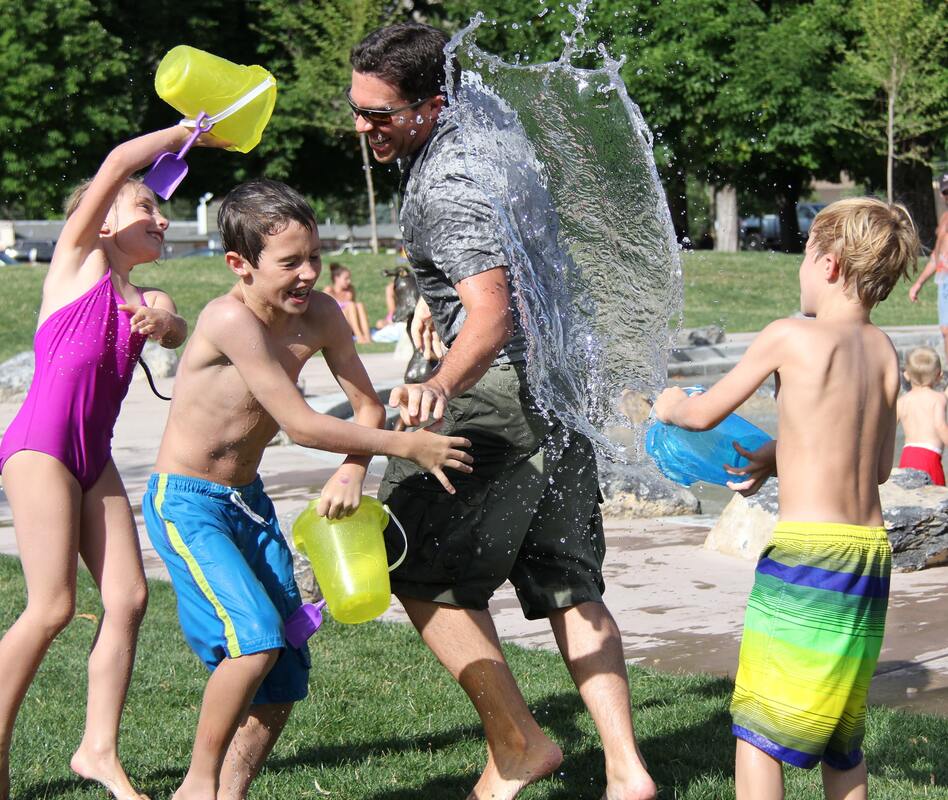|
Family dynamics are complicated to say the least! You may be struggling with your own anxiety or depression while at the same time trying to be the best parent you can be. Kids are more anxious and depressed now than at any other time in history, so having a happy family may seem like a pipe dream to you. There is a way to help everyone feel better if you can adopt three simple (but not easy) mindsets and practice them every day. Helpful Mindset #1: Events are Neutral
Events are not emotionally charged in and of themselves. An event is a neutral fact. Spilled milk, a broken curfew, a disrespectful remark, a punch from one sibling to another - are all facts. They happened. Period. The emotion that you assign to them comes from your interpretation of the event. Your interpretation comes from the ideas that you hold about yourself (negative beliefs), and which are triggered by the event. More on that later. Having the mindset that events are neutral is helpful in the following ways:
You can practice this next time someone cuts you off in traffic. Remind yourself that it is a fact – you were cut off - no need to react with off-color language, rude gestures or crazed horn-honking. This leads to: Helpful Mindset #2: You are Never Upset for the Reason You Think. You think you are upset because:
But, as you now know, these are all neutral facts or events. Your upset over them comes from someplace else. Why, then, are you so upset? The upsets that you experience arise because the events such as those listed above are triggers that subconsciously prompt you to replay a traumatic experience from the past – likely something that happened to you before you were eight years old. The emotion that arises in response to a triggering event is one you have felt many times before. Perhaps you are often angry, or frequently embarrassed. Perhaps you become fearful repeatedly. These emotions originated in early childhood events in which you made up a negative (or limiting) belief about yourself, such as “I’m worth less than others”, or “I’m not good enough”, or “I don’t belong”. You feel the same emotion whenever you see evidence that the belief you made up is true. So, if I see trash on my lawn, that gives me evidence that I’m being treated in a disrespectful way, and I’ll react with anger. I think I’m angry with the kids next door, but in reality, I’m angry for another reason entirely – and it goes back to my own childhood. I made up a belief about myself that “I’m worthless,” when I was trying to get my mom’s attention as a three-year-old, and she wasn’t listening to me. The trash on the lawn, then, acts as an opportunity to heal the belief that underlies the upset – that I’m worth less than others. That’s not true – we all have the same Inherent Worth. Accepting the truth that we are Inherently Worthy is the antidote to the negative beliefs that we made up as children. That brings us to: Helpful Mindset #3: This is Happening for You not to You! This mindset shifts you out of victim-thinking mode. Now you can take full responsibility for every aspect of your life. You are not giving someone else control of your happiness or lack of it. Whatever happens now can be seen as neutral, and if there is an emotional reaction you will know that there is a negative belief in play that can be found and healed. The question then becomes, “What is this for?” and the answer will always be, “To heal a negative belief” – you just have to figure out which belief needs healing and proceed to fix it. One way of finding and healing negative beliefs that you hold is by learning the Choose Again Six-Step Process which was devised by Diederik Wolsak RPC MPCP. You can find more information about the technique on the Choose Again website www.choose-again.com. I’ll summarize it here: Brief summary of the Choose Again Six Steps to Freedom Step One: I’m upset (any feeling other than peace, love, or joy). Step Two: Me. It’s about me (not about what I think it is about). Step Three: Feel the feeling. I label the feeling the upset provokes in me. Step Four: Remember the feeling. I take the feeling back in memory to early childhood or any previous time I felt this same way. Step Five: Establish the judgement I made of myself in that memory. Step Six: Embrace the truth of me. I am Inherently Worthy, whole and complete – I made up whatever the judgment was in step five and it was never true and I can let it go now. Let’s go back to the trash on the lawn example:
It’ll take a bit of practice but these three mindsets, used together, will result in happier families even if only one parent practices them regularly. This is a process that can take some time, but it is one that changes behavior at the root level where it can actually work. Please comment below or ask questions about how you might utilize these three mindsets in tackling a problem you have at home.
0 Comments
Leave a Reply. |
Author I know firsthand the emotional and financial costs of having a troubled teenager and I don’t want that to happen to you. That's why I wrote my book What They Don't Teach in Prenatal Class: The Key to Raising Trouble-Free Kids and Teens (available on Amazon). Archives
April 2022
Categories
All
|
get in touch
Email: [email protected] Tel: (1) 604 720 2776
Sign Up to my newsletter
Get information and articles about how to raise happy, mentally-healthy, and addiction-free kids!


 RSS Feed
RSS Feed